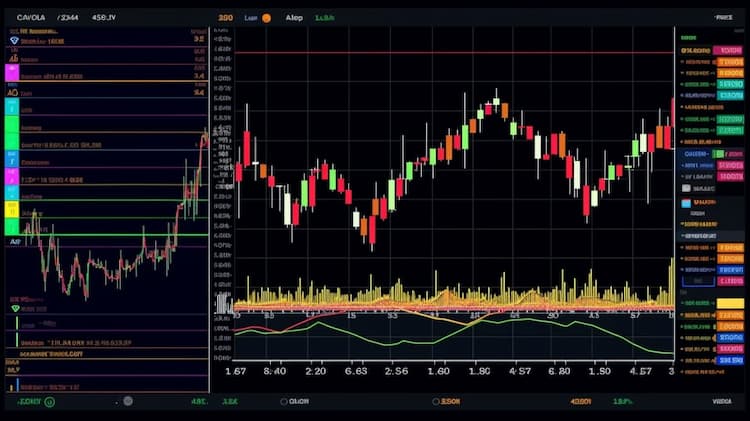
What are the best Genomic & Biotechnology ETFs?
In this article, we explore the realm of Genomic & Biotechnology Exchange-Traded Funds (ETFs) to identify some of the top options available to investors. As the field of genomics and biotechnology continues to evolve and revolutionize healthcare and other industries, these ETFs provide an opportunity to gain exposure to the potential growth and advancements in this exciting sector.
Genomic & Biotechnology ETFs: An Overview
Genomic and biotechnology exchange-traded funds (ETFs) have gained significant attention in recent years due to the rapid advancements in the field of genomics and biotechnology. These ETFs offer investors exposure to companies involved in researching, developing, and commercializing cutting-edge technologies and innovations in areas such as gene therapy, precision medicine, genetic engineering, and more. With the potential for substantial growth and transformative breakthroughs, investors are keen to identify the best ETFs in this sector.
Comparing Genomic & Biotechnology ETFs
One prominent ETF in the genomic and biotechnology space is the ARK Genomic Revolution ETF (ARKG). ARKG seeks to provide exposure to companies that aim to extend and enhance the quality of human and other life by incorporating technological and scientific advancements in genomics. It holds a diverse portfolio of companies involved in genomics research, gene editing, therapeutics, diagnostics, and more. With a focus on innovation, ARKG has delivered impressive returns to investors over the years.
Another notable ETF in this sector is the iShares Genomics Immunology and Healthcare ETF (IDNA). IDNA seeks to track the investment results of an index composed of developed and emerging market companies that could benefit from the long-term growth and innovation in genomics, immunology, and healthcare. The ETF provides exposure to companies involved in gene therapy, targeted therapeutics, and other genomic advancements.
When comparing ARKG and IDNA, both ETFs offer exposure to the genomic and biotechnology sector, but they have different investment approaches and holdings. Investors should consider their investment goals, risk tolerance, and specific preferences to choose the ETF that aligns with their investment strategy.
 ARKG overlap What are the best Genomic & Biotechnology ETFs?
ARKG overlap What are the best Genomic & Biotechnology ETFs?
Understanding the Potential of Genomic & Biotechnology ETFs
Investing in genomic and biotechnology ETFs provides an opportunity to participate in the growth potential of breakthrough technologies and scientific advancements. Genomic research and biotechnology innovations have the potential to revolutionize healthcare, agriculture, and other industries, leading to improved outcomes and substantial economic benefits.
By investing in these ETFs, investors gain exposure to a diversified portfolio of companies at the forefront of genomics and biotechnology. However, it's essential to consider the inherent risks associated with this sector, such as regulatory challenges, clinical trial outcomes, and market volatility.
How to Evaluate Genomic & Biotechnology ETFs
When evaluating genomic and biotechnology ETFs, investors should consider several factors:
Holdings: Examine the ETF's holdings to understand the composition and concentration of companies involved in genomics and biotechnology. Look for a well-diversified portfolio that includes a mix of established players and emerging companies.
Performance: Assess the historical performance of the ETF, considering both short-term and long-term returns. Look for consistent performance and compare it with relevant benchmarks.
Expense Ratio: Consider the expense ratio of the ETF, as it directly impacts the overall returns. Lower expense ratios can be more favorable for investors in the long run.
Fund Size and Liquidity: Evaluate the fund's size and liquidity to ensure there is sufficient trading volume and assets under management to support efficient trading.
In conclusion, investing in genomic and biotechnology ETFs offers a unique opportunity to gain exposure to companies at the forefront of technological advancements. By comparing ETFs such as ARKG and IDNA, investors can select the one that aligns with their investment goals and risk tolerance.
Disclaimer: This article is for informational purposes only and is not providing any investment advisory services. Investors should conduct their own research and consult with a financial advisor before making any investment decisions.
Sources:
Get startedFAQ
What is a Genomic & Biotechnology ETF?
A Genomic & Biotechnology ETF is an exchange-traded fund that focuses on investing in companies within the genomic and biotechnology sectors. These ETFs typically include companies involved in genetic research, drug development, healthcare technology, and other related areas.
What are the advantages of investing in Genomic & Biotechnology ETFs?
Investing in Genomic & Biotechnology ETFs offers investors exposure to a diverse portfolio of companies within the rapidly evolving field of genomics and biotechnology. These sectors have the potential for significant growth and innovation, and ETFs provide a convenient way to access this investment opportunity.
What are some popular Genomic & Biotechnology ETFs?
Some popular Genomic & Biotechnology ETFs include ARK Genomic Revolution ETF (ARKG), iShares Genomics Immunology and Healthcare ETF (IDNA), Invesco Dynamic Biotechnology & Genome ETF (PBE), and SPDR S&P Biotech ETF (XBI).
What factors should I consider when choosing a Genomic & Biotechnology ETF?
When selecting a Genomic & Biotechnology ETF, consider factors such as the ETF's expense ratio, liquidity, underlying index or strategy, holdings diversification, performance track record, and the expertise and reputation of the fund provider.
How can I invest in Genomic & Biotechnology ETFs?
To invest in Genomic & Biotechnology ETFs, you can open an account with a brokerage firm that offers access to ETFs. Once your account is set up, you can search for the specific ETFs you are interested in and buy shares through the stock market using their respective ticker symbols.





